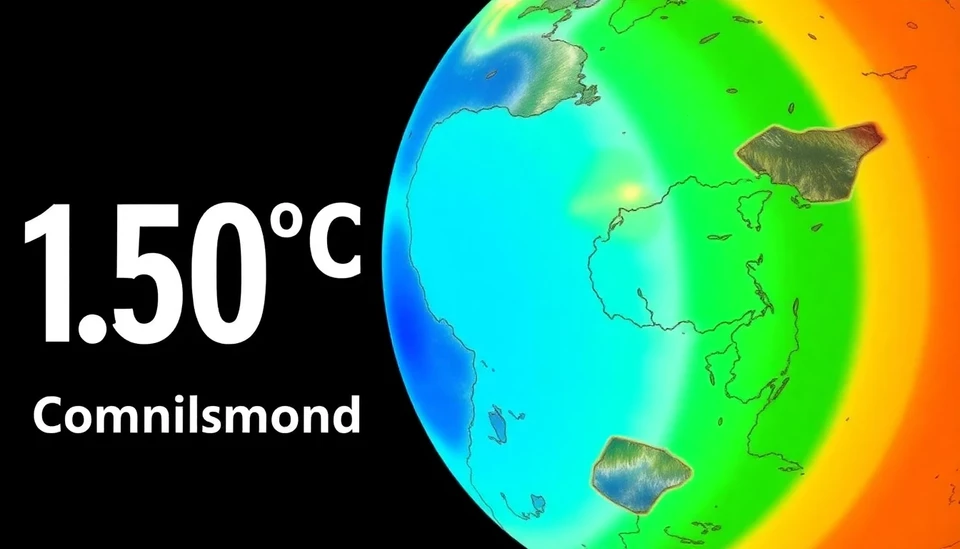
In the ongoing discourse on climate change, the target of limiting global warming to 1.5°C above pre-industrial levels continues to be a central focus for scientists, policymakers, and environmental advocates. Despite overwhelming scientific evidence warning of dire consequences should this threshold be breached, discussions surrounding the feasibility and implications of meeting this goal are as relevant as ever.
Set by the Paris Agreement in 2015, the 1.5°C target represents an ambitious benchmark aimed at mitigating the worst impacts of climate-related disasters. The Intergovernmental Panel on Climate Change (IPCC) has emphasized that exceeding this limit will not only cause irreversible damage to ecosystems but also lead to widespread social and economic disruptions globally. However, the question persists: why does this target continue to dominate climate conversations nearly a decade later?
Primary reasons for the threshold's ongoing prominence include the growing body of scientific research that outlines the potential ramifications of a warmer planet. Various studies have revealed that each fraction of a degree of warming has considerable ramifications, affecting weather patterns, sea levels, and biodiversity. The heatwaves, floods, and wildfires witnessed in recent years serve as stark reminders of the urgent need for action, and many experts believe that the 1.5°C target is the line that must not be crossed.
Furthermore, the increasing frequency of climate-related disasters has catalyzed grassroots movements, bringing public awareness and pressure on governments and corporations to adhere to more stringent climate measures. Activists have illuminated the urgent need for action, highlighting the gap between current global emissions trajectories and those needed to maintain the 1.5°C target. The calls for equity, justice, and accountability in climate actions have broadened the conversation beyond just temperature limits.
However, some experts argue that focusing solely on the 1.5°C target might hinder broader and more necessary conversations about sustainability and climate justice. Critics suggest that by fixating on a specific number, there is a risk of ignoring other significant issues, such as resource allocation, energy transition, and technological innovations that can facilitate holistic environmental benefits. They advocate for a multi-faceted approach that combines immediate action with long-term sustainability goals.
The dialogue surrounding the 1.5°C goal has also been influenced by the advancements in technology and renewable energy that offer potential pathways to reducing global carbon emissions. Innovations in solar, wind, and battery storage technologies have grown exponentially, making the feasibility of meeting the ambitious target more realistic. Countries are increasingly committing to net-zero emissions by mid-century, suggesting a shift in the global narrative from mere discussions to actionable commitments.
Yet, despite such advancements and commitments, significant disparities remain in climate action efforts across different regions. Some nations continue to prioritize economic growth over environmental sustainability, raising concerns about the fairness and adequacy of responses to the climate crisis. The challenge lies in balancing economic development with the pressing need to protect the planet, making discussions surrounding the 1.5°C target even more vital.
As the world turns its attention to the upcoming climate conferences and the international community grapples with the realities of climate change, the conversation surrounding 1.5°C is unlikely to dissipate. Instead, it will evolve, addressing not just the temperature target, but also the imperative of equitable responses to climate crises, technology advancement, and sustainable development. The collective urgency to act will continue to underpin these discussions, with the fate of the planet hanging in the balance.
In conclusion, while the debate around the 1.5°C target may seem exhaustive, it remains an essential component of the climate discourse. The implications of sustained temperatures beyond this threshold are too significant to ignore, and as the world navigates its collective future, this target continues to be a beacon guiding various climate actions and policies.
#ClimateChange #GlobalWarming #1point5Degrees #Sustainability #ParisAgreement #EnvironmentalJustice #ClimateAction #NetZero #RenewableEnergy #ClimateCrisis
Author: Megan Clarke




